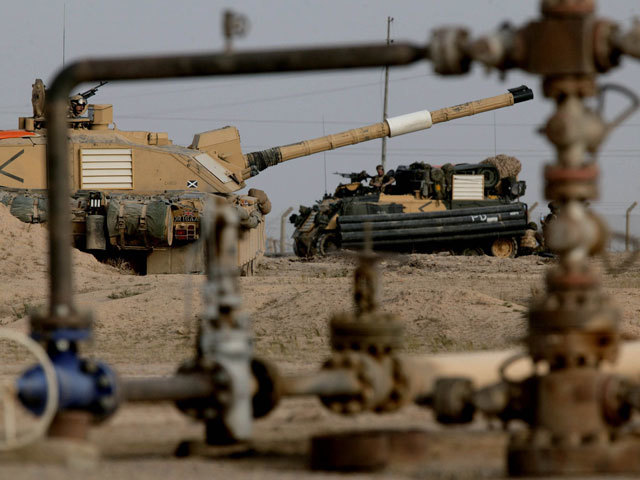
The former head of Britain’s elite SAS regiment said cyber attackers pose a clear and present danger to energy sector, with countries and compnaies at risk from crippling assaults on their infrastructure and systems.
Major General (retired) John Holmes, was speaking ahead of a global security and cyber summit, which brings together a who’s who of global security experts and senior oil industry security specialists in Aberdeen for a two day series of lectures and discussions on safety, security and how to tackle cyber crime in the energy sector.
Holmes, who joined 22 SAS Regiment in 1974 and commanded the regiment from 1989 to 1992, including during the first Gulf War), now runs his own security consultancy in London. He is chairing the first day of the Global Security and Cyber Summit, organised by Aberdeen company OffshoreSafety Pro.
“The cyber threat is real, credible, useable and deniable. For a nation state such as Russia or China, they can carry out an attack and have full deniability of ever having done so. They can create all sorts of havoc and can hit targets with very little risk of being held accountable.
“You can call it a clear and present danger.”
A coordinated cyber-attack at the end of last year on Ukraine’s power grid was made by hackers using a Russian-based internet provider, according to reports.
Ukraine’s energy minister said an investigation had been completed into the incident, which was seen as the first known power outage caused by a cyber-attack.
Holmes said: “The risk is likely to come from nation states. A highly capable hacker may be able to bring a refinery to standstill, but a nation state has the knowledge to take an entire sector down.”
He cited the historian Max Hastings, who described Russia as exporting three things: “Oil, gas and fear”.
Holmes rose to the top of the Special Forces during his military career, running the Special Forces Policy Desk at the Ministry of Defence and subsequently serving as Director of UK Special Forces, during which time he commanded Operation Barras in Sierra Leone.
Subsequent to the second Gulf War he was instrumental in creating a 15,000 man Oil Protection Force with its own air wing for the Coalition Provisional Authority.
He said the current unrest in the Niger Delta, where militants have attacked oil and gas installations was something the major companies had to cope with.
He also said the recent high alert status in the UK mainland, indicating the perceived threat from Islamic terror groups, and recently from Irish Republicans, meant the security services had to maintain constant vigilance.
He said: “I do think the UK is better placed than other countries. The Belgians have been unfairly criticised after the Brussels attack. They’ve had decades of comparative peace, whereas the IRA threat during the 70s and 80s enabled the British security services to develop the procedures and experience that assists M15 and Special Branch today.
“It did school them in the black arts and we know where to invest our resources to best effect to tackle terrorist threats.”
Holmes also said that North Sea oil rigs had at one point been seen as potential terrorist targets, although their very remoteness had given them a good deal of protection.
“In the 70s it was very much believed to be the case…Special Forces had to consider a number of scenarios about how to deal with the threat,” he said.
Holmes said the SAS and other special forces remained a vital part of the UK’s defence strategy.
“There is no doubt that modern threats are very much about information and crunching huge amounts of data. However, when we do identify the enemy, we still have to go and kill those people,” he said.
The two-day conference has been organised by Aberdeen-based Operational Security Professionals.
Thomas McCarthy, QHSSE director, said: “We’ve assembled global security experts here in Aberdeen for the inaugural summit.
“It is an opportunity for oil and gas professionals to understand what threats their companies face and learn from the best people in the security field.”